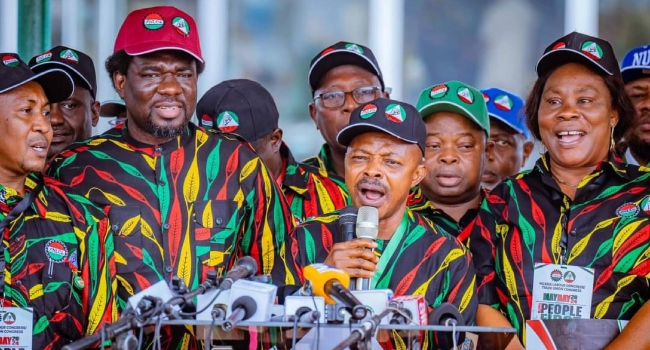
The Organised Labour, comprising the Nigeria Labour Congress (NLC) and the Trade Union Congress (TUC), has once again rejected a new minimum wage proposal by the Federal Government.
The latest offer of ₦60,000 as the new minimum wage was turned down by the unions, who have instead adjusted their demand from ₦497,000 to ₦494,000.
A key member of the Tripartite Committee negotiating the new minimum wage disclosed to Newsmen that the Federal Government and the Organised Private Sector proposed ₦60,000, a slight increase from the ₦57,000 offered last week. Previously, the government had suggested ₦48,000 and ₦54,000, which were also rejected by the unions.
Initially, the Organised Labour had demanded ₦615,000 but lowered their demand to ₦497,000 last week and further to ₦494,000. Despite these adjustments, the meeting held on Tuesday ended in a deadlock with no agreement reached on the new minimum wage, just three days before the labour unions’ May 31 deadline for the government to conclude negotiations.
The unions argue that the current minimum wage of ₦30,000 is insufficient to meet the needs of the average Nigerian worker, especially given that many governors are not even paying this amount. The Minimum Wage Act of 2019, which mandated a review every five years, expired in April 2024.
NLC President Joe Ajaero criticized the government’s proposals as “unsubstantial,” stating, “It is still not substantial compared to what we need to make a family moving.” He lamented the dire economic situation faced by workers, highlighting a significant disparity between the economy of the wealthy and that of the workers. “The economy of the workers is totally destroyed. In fact, the workers don’t have any economy. I think there are two economies in the country; the economy of the bourgeoisie and the economy of the workers. I think we have to harmonise this so that we can have a meeting point,” Ajaero said.
The Tripartite Committee continues to face challenges in reaching a consensus on the new minimum wage, reflecting the ongoing struggle to balance economic realities with the needs of Nigerian workers.








